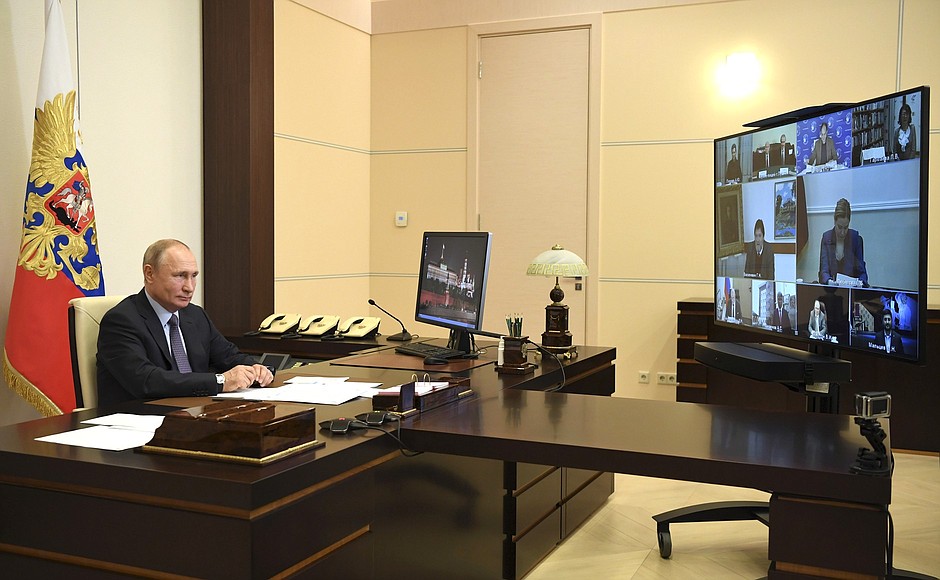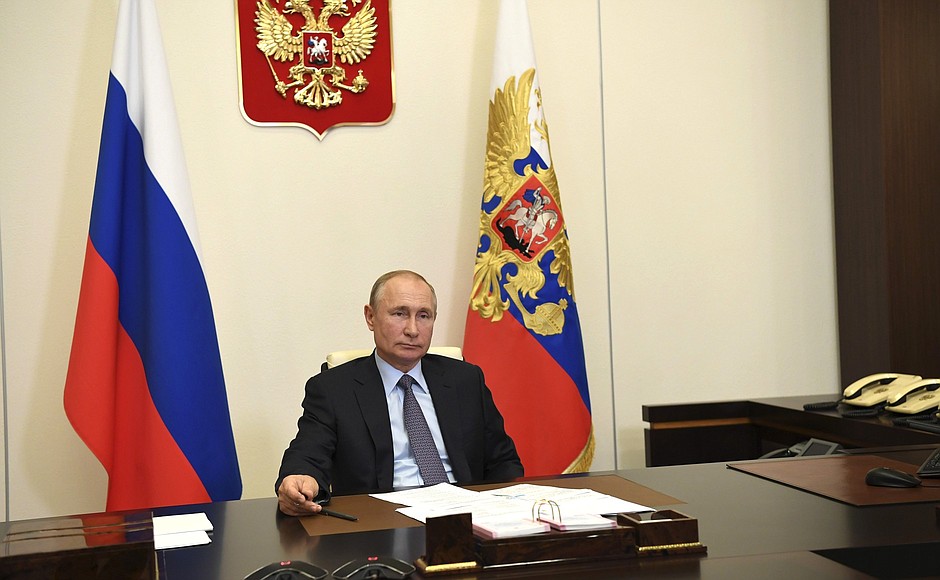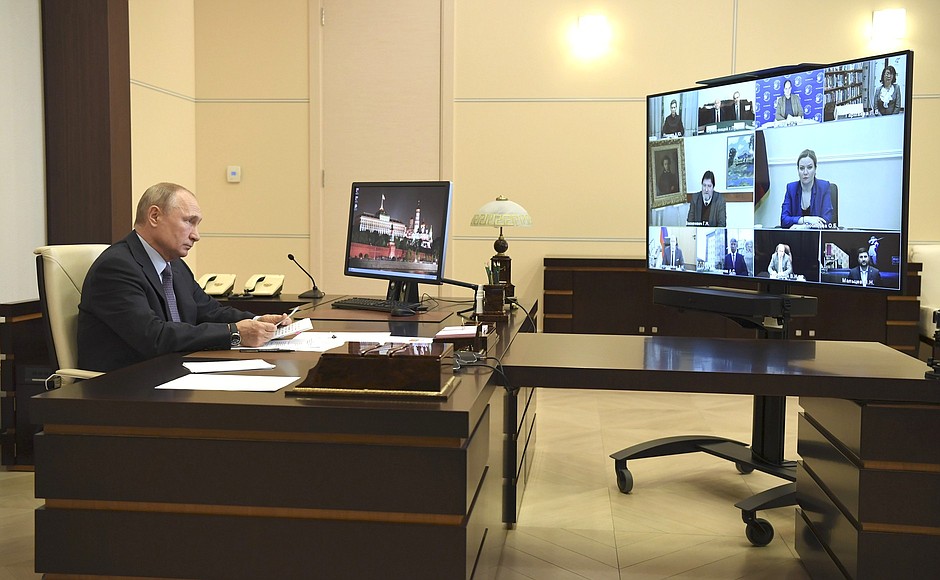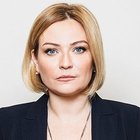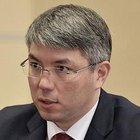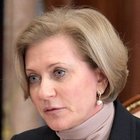Russian Language Day and Pushkin Day are marked annually on June 6, the birthday of the great Russian poet Alexander Pushkin, the founder of the modern literary Russian language.
Activities of cultural institutions related to Alexander Pushkin were discussed at the meeting. Vladimir Putin reminded the participants that the great poet’s 225th birthday would be marked in 2024 and said that a corresponding executive order would be issued by the end of June, envisaging support measures for all Pushkin museums as well as the establishment of a digital educational and scientific centre dedicated to his works.
During the videoconference, the new building of the Buryatia National Library, which will mark its 140th anniversary next year, was unveiled. Vladimir Putin noted that this was an important event for the region and for all of Russia, and added that the library has the largest collection of books, manuscripts and documents on Buryatia in the world.
Taking part in the discussion of coronavirus-related problems facing theatres were Minister of Culture Olga Lyubimova and Head of the Federal Service for the Oversight of Consumer Protection and Welfare – Chief State Sanitary Doctor of Russia Anna Popova.
The President promised that all the proposals made during the meeting would be considered and taken into account when drafting decisions on the further development of culture.
Taking part in the meeting were Deputy Prime Minister Dmitry Chernyshenko, Culture Minister Olga Lyubimova, Presidential Adviser Vladimir Tolstoy, Head of the Republic of Buryatia Alexei Tsydenov, Head of the Federal Service for the Oversight of Consumer Protection and Welfare (Rospotrebnadzor) – Chief Sanitary Doctor of the Russian Federation Anna Popova, Director of the Mikhailovskoye Alexander Pushkin Museum Reserve Georgy Vasilevich, Director of the Alexander Pushkin All-Russian Museum Sergei Nekrasov, Artistic Director of the Mariinsky Theatre Valery Gergiev, Director of the National Library of the Republic of Buryatia Lyudmila Garmayeva, Director of the Omsk Region Children’s and Youth Theatre Mikhail Maltsev, and poet, playwright and translator of Alexander Pushkin’s works into English Julian Henry Lowenfeld.
* * *
President of Russia Vladimir Putin: Good afternoon, friends.
I am very happy to greet you on our great poet’s birthday and offer you my greetings on Pushkin Day and Russian Language Day.
Today we are marking two public holidays that are closely and inseparably connected in their meaning, their essence and their significance, of course.
Alexander Pushkin is not just a legacy of Russian and world culture. He is acknowledged – and you know that better than anyone else – as the founder of the modern Russian language, the official language of our country, the Russian Federation. Russian Language Day also has the status of an international holiday since Russian is one of the official languages of the United Nations Organisation.
The Russian language is more than a means of communication for our country. It unites all of Russia’s ethnicities, is a cornerstone of our national identity, our great heritage, which is unparalleled in its imagery, clarity, precision, expressiveness and beauty. These properties are probably the secret of the magnitude and attraction of Russian literature and Russian culture, which delights the entire world and serves as a benchmark for many genres of world art.
Friends, I am sure you are well aware of all that. Russian culture, literature and language have an everlasting importance for you and your creative work.
I would like to take this opportunity to sincerely thank everyone who, in this difficult period for our nation and society due to the coronavirus pandemic, did everything to make sure that Russia’s cultural life continued uninterrupted and that our citizens, young people, could watch theatre performances and listen to lectures and concerts online, and go on virtual guided tours.
The past months have reaffirmed that Russian culture is robust and open to society. Regardless of the challenges we faced, cultural facilities did everything possible to support the people.
Of course, this was also a hard period for you and your colleagues in terms of both creativity and finance, and even management. You know that the Government was instructed to amend the indicators evaluating the performance of cultural facilities, primarily regarding the fulfilment of government orders, and submit proposals on sold tickets and subscriptions that remained unused due to the introduced restrictions. In addition, culture was included in the list of sectors to receive additional state support.
We are gradually returning to normal life. The national industrial and social recovery plan is being finalised. Cultural facilities’ operation will certainly be covered by the plan.
Let me stress that this plan is being adopted to resolve both current issues and future ones in view of our long-term development goals. The national projects, including the Culture project, will be amended.
All such decisions, and we have agreed on that with the Government, will be worked out in direct contact with representatives of the key areas, and culture is undoubtedly among them.
Such a discussion, as you know, has been ongoing throughout the past weeks, and I would like to hear from you what additional measure you think are needed for our museums, theatres, circuses, exhibition and concert halls, libraries, music schools and the film-making industry to recover from the forced holidays with minimal losses and, which is crucial, to get an impulse to continue working and actively developing in the future.
Let us discuss all of that today.
<…>
